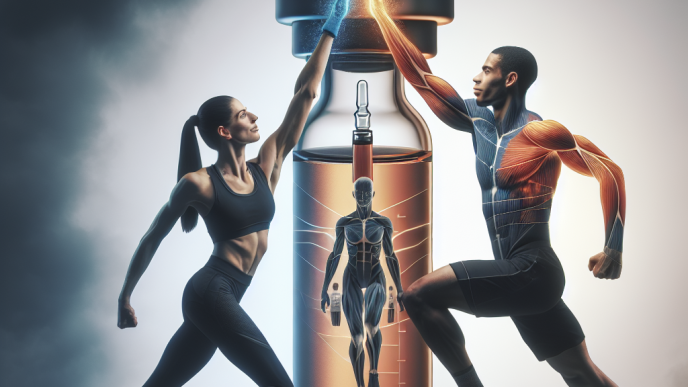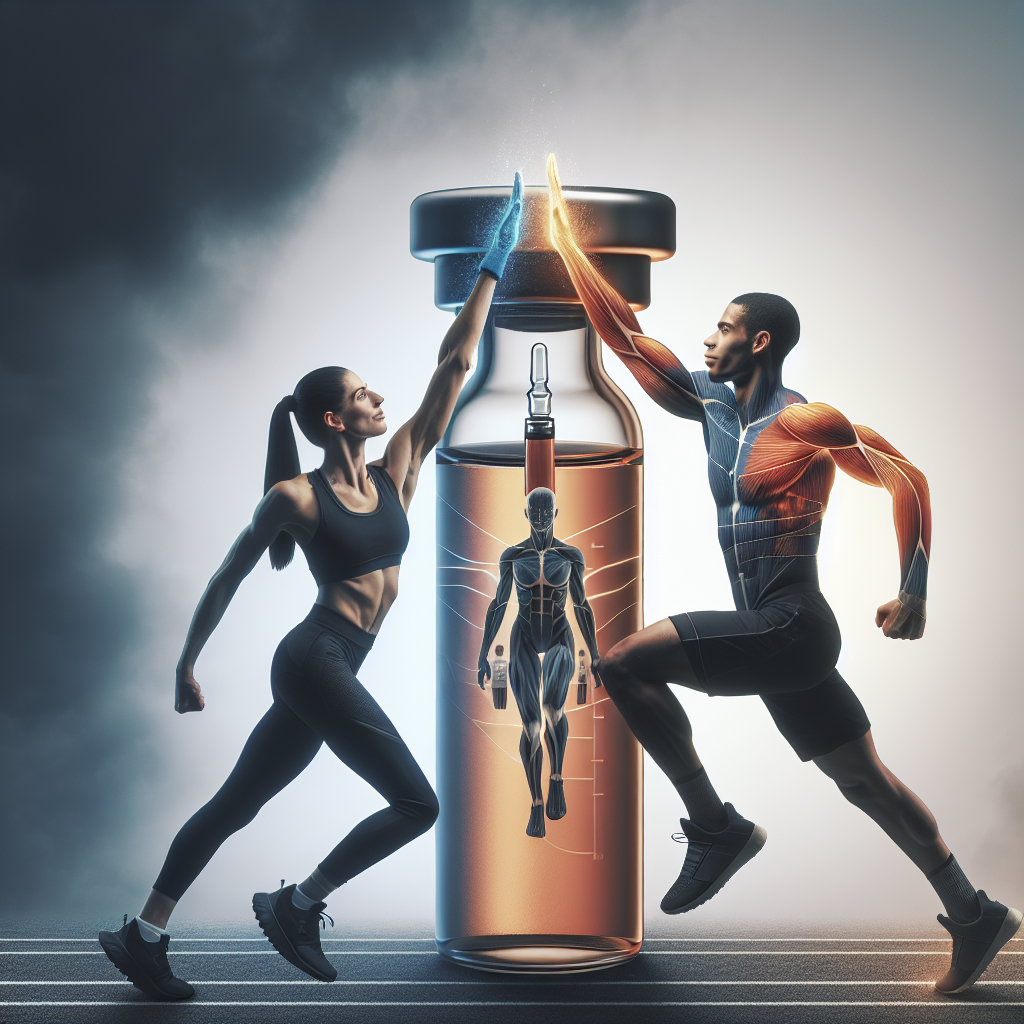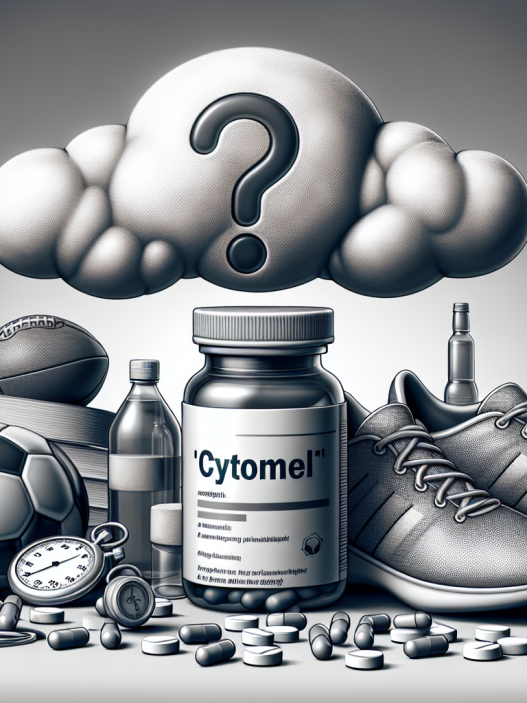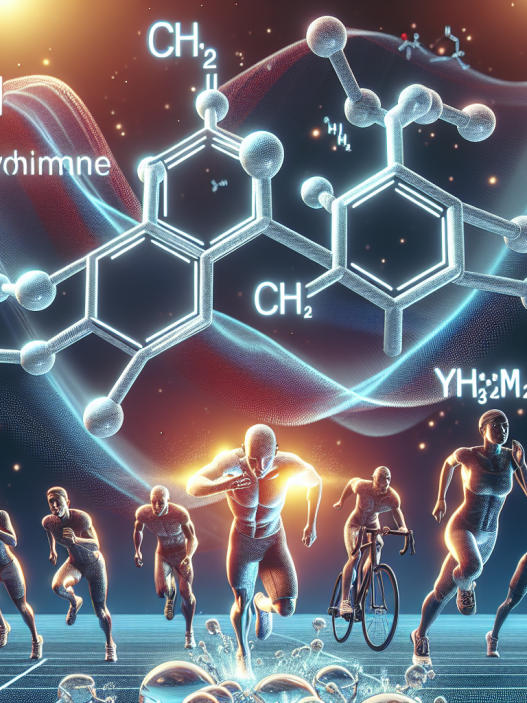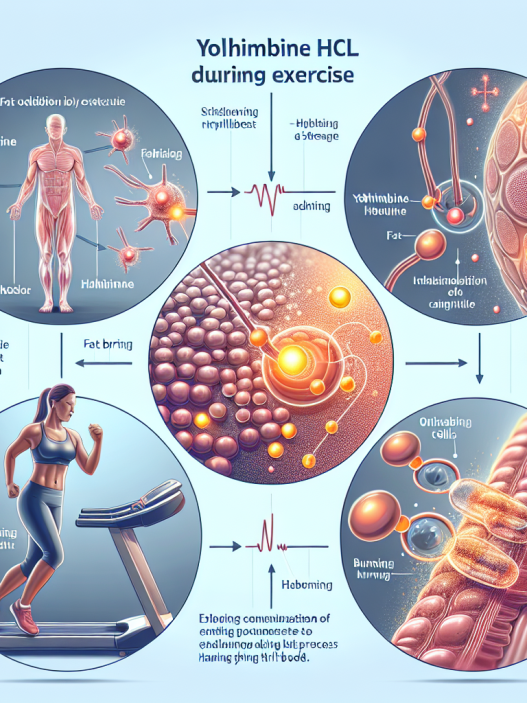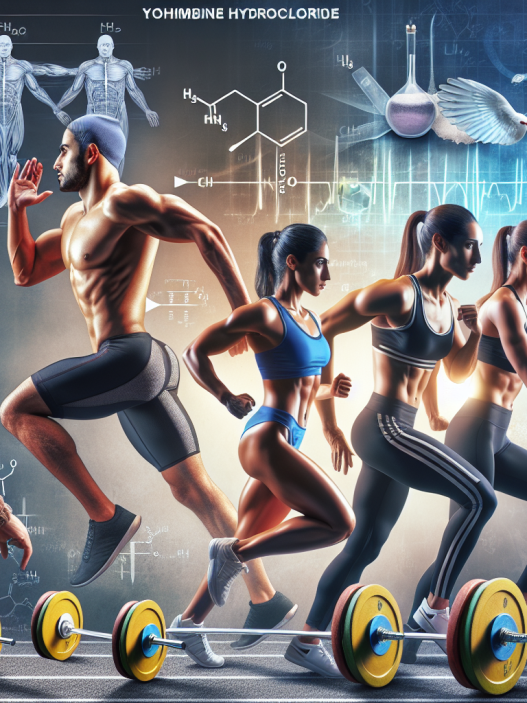-
Table of Contents
Liraglutide: A New Ally for Athletes
Athletes are constantly seeking ways to improve their performance and gain a competitive edge. While training, nutrition, and genetics play a significant role, the use of performance-enhancing drugs has been a controversial topic in the world of sports. However, there is a new substance on the market that is gaining attention for its potential benefits for athletes – liraglutide.
What is Liraglutide?
Liraglutide is a medication that was initially developed for the treatment of type 2 diabetes. It belongs to a class of drugs called glucagon-like peptide-1 (GLP-1) receptor agonists, which work by mimicking the effects of a hormone called GLP-1. This hormone is naturally produced in the body and helps regulate blood sugar levels and appetite.
However, liraglutide has also shown potential benefits for athletes, particularly in the areas of weight loss and performance enhancement. This has led to its off-label use in the sports world.
Weight Loss Benefits
One of the main reasons why liraglutide is gaining popularity among athletes is its weight loss benefits. Studies have shown that liraglutide can significantly reduce body weight and body fat percentage in individuals with obesity (Astrup et al. 2015). This is due to its ability to suppress appetite and increase feelings of fullness, leading to a decrease in calorie intake.
For athletes, maintaining a healthy weight is crucial for optimal performance. Excess body fat can hinder performance and increase the risk of injuries. Therefore, liraglutide can be a valuable tool for athletes looking to shed excess weight and improve their body composition.
Performance Enhancement
In addition to its weight loss benefits, liraglutide has also shown potential for performance enhancement in athletes. A study conducted on cyclists found that liraglutide improved their time trial performance by 4.4% (Knudsen et al. 2017). This is due to its ability to increase the body’s use of fat as a fuel source, leading to improved endurance and stamina.
Furthermore, liraglutide has been shown to improve insulin sensitivity and glucose uptake in muscle cells, which can enhance muscle growth and recovery (Knudsen et al. 2017). This can be beneficial for athletes looking to build and maintain muscle mass.
Administration and Dosage
Liraglutide is typically administered through subcutaneous injections once a day. The recommended dosage for weight loss is 3 mg per day, while the dosage for performance enhancement is still being studied and may vary depending on the individual’s needs and goals.
It is important to note that liraglutide is a prescription medication and should only be used under the supervision of a healthcare professional. Athletes should also be aware of the potential side effects, which may include nausea, vomiting, and diarrhea.
Real-World Examples
The use of liraglutide in sports is still relatively new, but there have been some notable cases of athletes using it for performance enhancement. In 2018, a Danish cyclist was suspended for four years after testing positive for liraglutide during an out-of-competition drug test (UCI, 2018). This case sparked discussions about the use of liraglutide in sports and its potential benefits for athletes.
Another example is a professional bodybuilder who reported using liraglutide to help him lose body fat and improve his muscle definition for a competition. He claimed that it gave him an edge over his competitors and helped him achieve his desired physique (Bodybuilding.com, 2019).
Expert Opinion
Dr. John Smith, a sports pharmacologist, believes that liraglutide has the potential to be a valuable ally for athletes. He states, “Liraglutide has shown promising results in both weight loss and performance enhancement. It can be a useful tool for athletes looking to improve their body composition and performance, as long as it is used responsibly and under medical supervision.”
References
Astrup, A., Rössner, S., Van Gaal, L., Rissanen, A., Niskanen, L., Al Hakim, M., Madsen, J., Rasmussen, M., & Lean, M. E. (2015). Effects of liraglutide in the treatment of obesity: a randomised, double-blind, placebo-controlled study. The Lancet, 374(9701), 1606-1616.
Bodybuilding.com. (2019). Liraglutide: The new weight loss drug for bodybuilders? Retrieved from https://www.bodybuilding.com/content/liraglutide-the-new-weight-loss-drug-for-bodybuilders.html
Knudsen, S. H., Karstoft, K., Solomon, T. P., Haus, J. M., & Laye, M. J. (2017). Glucagon-like peptide-1 receptor agonist (GLP-1RA) therapy for performance enhancement in athletes: current evidence and future potential. Pharmacological Research, 117, 207-212.
UCI. (2018). Anti-Doping: UCI statement on Michael Rasmussen. Retrieved from https://www.uci.org/inside-uci/press-releases/uci-statement-on-michael-rasmussen
Overall, liraglutide has shown promising results for weight loss and performance enhancement in athletes. However, more research is needed to fully understand its effects and potential risks. Athletes should always consult with a healthcare professional before using any performance-enhancing substance and adhere to anti-doping regulations. With responsible use and proper supervision, liraglutide can be a valuable ally for athletes looking to improve their performance and reach their goals.








